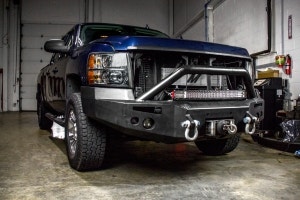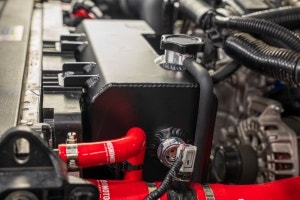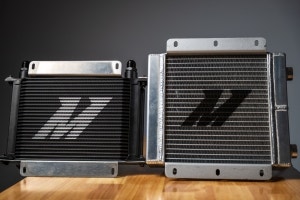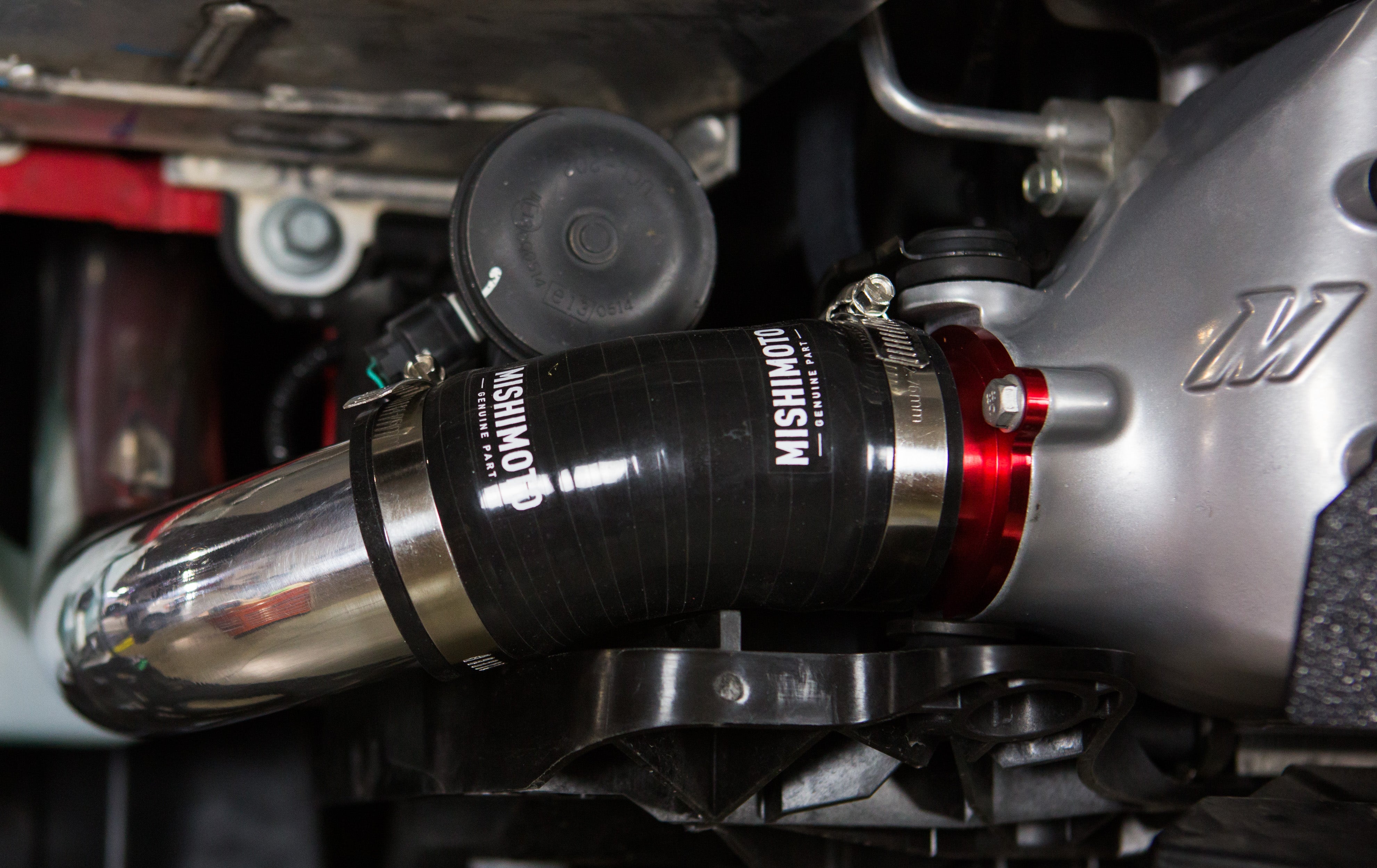
Bring a Jacket- 2016+ Honda Civic 1.5T Performance Intercooler R&D Part 3 - Production Sample
It's autumn and, more importantly, it's the start of prime boosting season. The cool, dense air that's characteristic of the changing seasons is much easier to compress and cram into the cylinders, while the lower ambient temperatures help the intercooler. Even with the stock set up, your tenth generation Civic has a little extra pep in its step. But there's no reason to settle for just a little pep when you can get more.
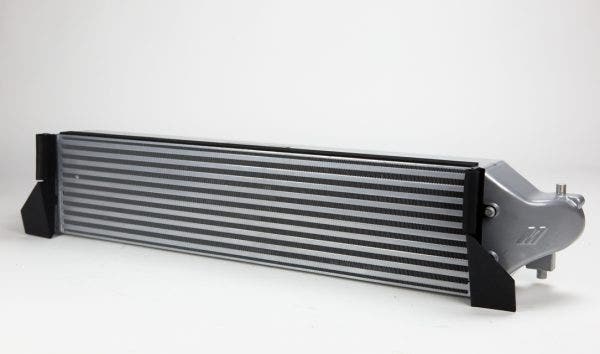
Our new intercooler design brought to life, and fresh out of the box from our factory.
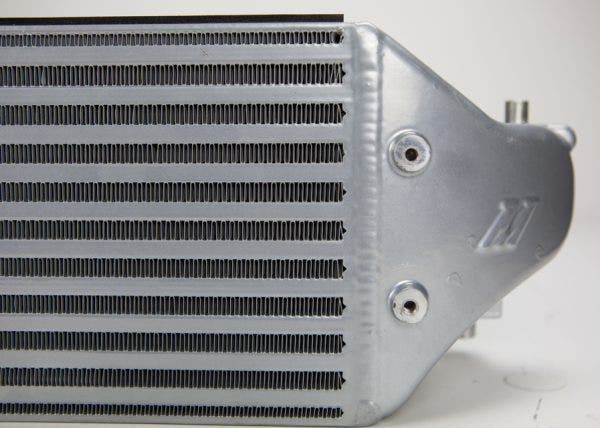
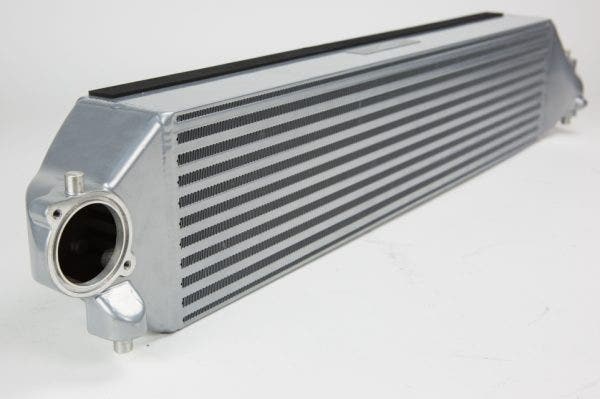
When it comes to intercoolers, the old saying "bigger is better" almost always rings true, and even with the spatial restrictions we faced during the design process, we were still able to deliver on that mantra. To start, we added three more rows to our cooler to increase the fin surface area by 97%, almost doubling the amount of area being directly exposed to airflow. This might not come as a surprise to those who saw our design in the last update, but we decided the best direction to go was up. We opted for taller over thicker, but that's not to say we didn't add thickness to this cooler as well, a full extra inch to be exact. The combination of this extra depth and the additional rows means an increase of internal volume from 315in3 to 637in3, equating to a 102% increase. While it might not look it from the outside, our new core design is double the size of the stock unit.
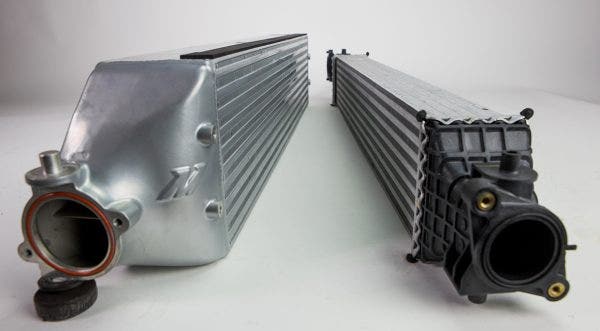
The internal volume of our design is double that of the stock core.
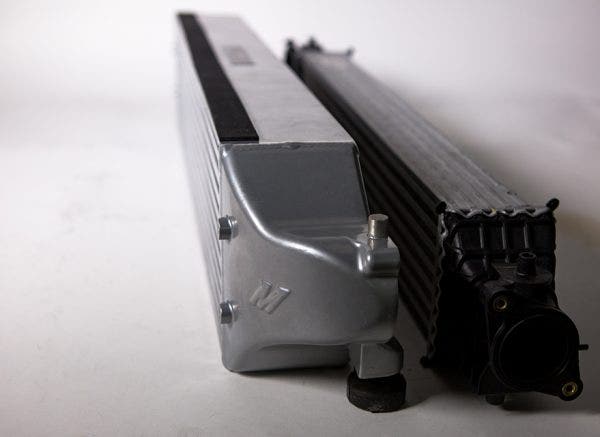
While we were limited on space for our new design, our production sample can still cast a shadow over the stock unit.
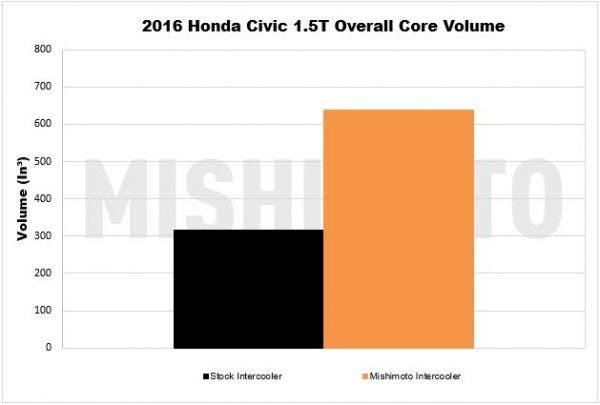
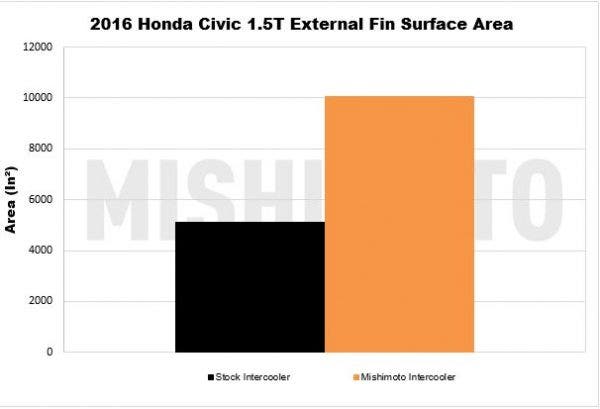
On top of nearly doubling the size of the intercooler for your 1.5T powered Civic, we've also ditched a few other aspects of the stock intercooler to increase the airflow and improve cooling characteristics. The first aspect was all the plastic in the original design. While plastic is beneficial for producing hundreds of thousands of units, it is easily damaged and can degrade over time. We've equipped our much larger core with cast aluminum end tanks that allow for increased and smoother airflow. Flow diverters integrated into the design of the end tanks ensure that we're making use of the full core.
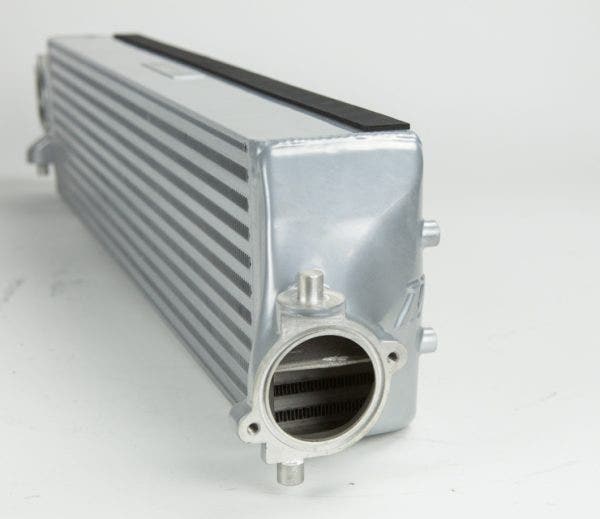
To maximize the full core, these diverters will direct the airflow to the top rows of the core.
Speaking of the core, we chose to differentiate from Honda's tube-and-fin design. This construction makes for a lighter intercooler and provides adequate cooling for the stock system, but it is vulnerable to heat-soak and has trouble shedding the heat even after freeing yourself from a traffic jam. Our new core will have no trouble rejecting heat with a bar-and-plate assembly. This construction combined with the volume increase means that it will not only take much longer to effectively heat-soak, but will also easily shrug off any acquired heat, the only downside being a few extra pounds to your Civic.
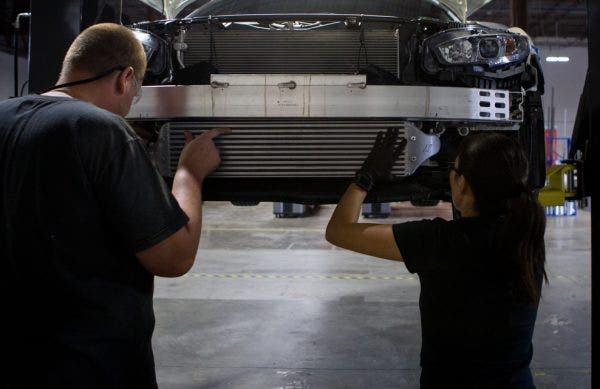
Ye, right, lends Dan a hand test fitting our intercooler sample on our loaner Si sedan.
Doubling the size of the stock intercooler meant fitment was still a concern. We initially designed this new intercooler to fit any of the 10th gen. Civics equipped with Honda's brand new turbocharged system without any modification. The last thing we want is for you to have to void any warranties. The first item on the list for when our Rallye Red Civic Sport returned was to double-check the fitment.
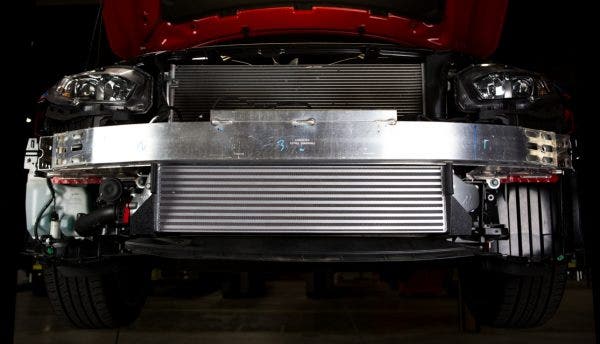
Our intercooler fills the space between the crash bar and the under body tray, maximizing the fin surface area.
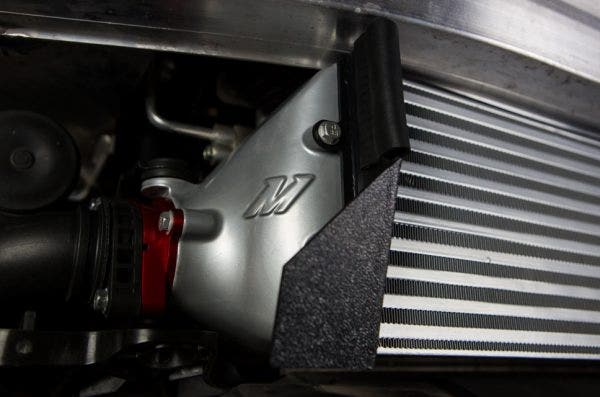
To keep any of the fresh airflow from escaping the grasp of the intercooler, Dan incorporated diverter shrouds, giving the flow no choice but to pass through the fins. Keep reading for more info on that splash of color.
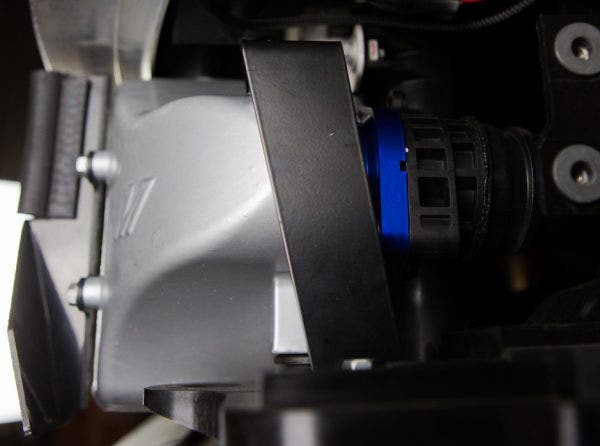
We are also including a new mounting bracket for the cold side designed for the increased size of our intercooler.
Rest assured, our much bigger design fits like a glove. We took the extra step to confirm that our bigger and better core fits across the Civic lineup as well.
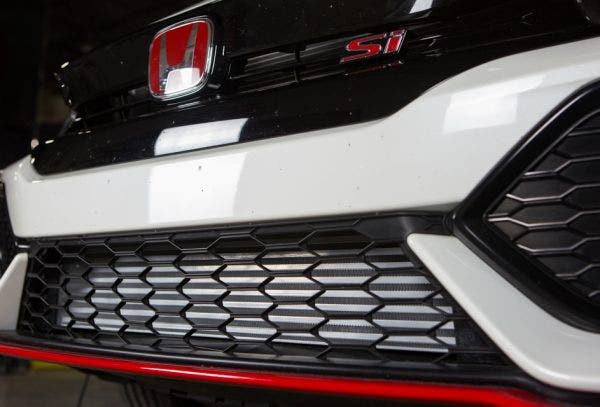
Even though the Si and Sport Hatch share the same front bumper cover, it never hurts to triple check your work. The taller and more prominent design complements the optional front lip on the Si.
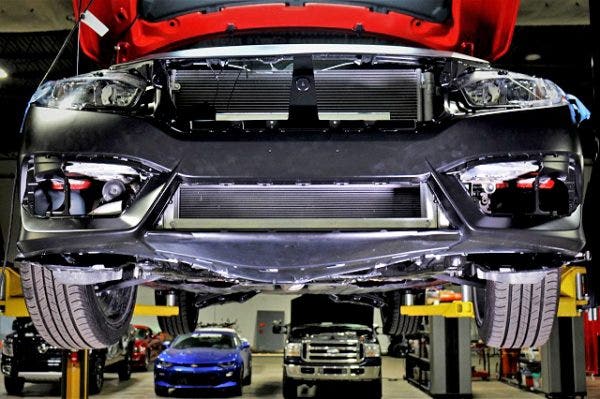
As mentioned in the last post, the different variants of the 10th generation Civic have their own style of bumper cover. To Cover our bases in the design process we ordered an EX-T front bumper to ensure that our design would fit. While the bumper was returned, our design has remained the same.
Perhaps second to fitting the core into its mounting position is coupling it with the piping. If you look back to our review of the stock equipment, Honda's stock piping attaches via a bracket rather than the standard rubber hosing and clamps. This put us in a bit of a predicament when trying to design a new core that will be compatible with both the stock piping and our improvements.
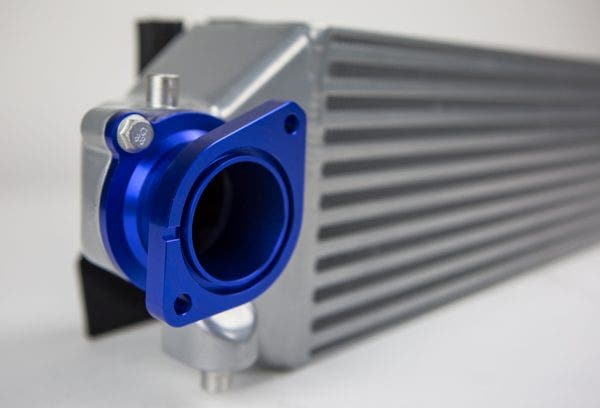
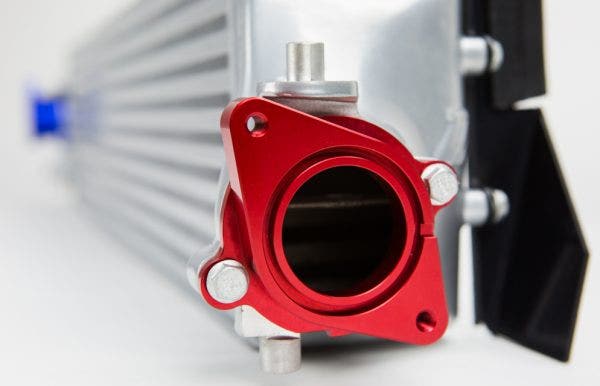
Since our design features both a larger inlet and outlet, designing the end tanks to be a direct fit for the stock piping flanges wasn't an option. Going down this route would restrict the airflow, and lower the horsepower rating on the new design. What our project engineer, Dan, came up with instead was a set of adapter flanges specifically for the stock piping. Each side is tapered to accommodate the difference in diameter between the piping and the larger diameter inlet or outlet. On top of adapting to the stock piping without sacrificing airflow, Dan added a splash of color to these adapter flanges, making it hard to mix up the hot and cold side of the intercooler.
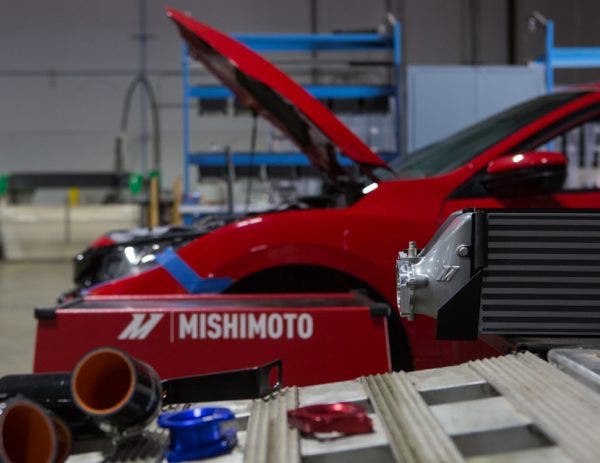
Satisfied with the build of our new intercooler design, we took our loaner FK7 from the lift and moved it over to our dyno for baseline and comparison tests between the two designs. With the amount of data we collected in the numerous different configurations, it must be saved for its own post, coming very soon. Also, be on the lookout for an in-depth coverage of our intercooler piping for the L15B7 powered Civics.
If you are looking for an intercooler kit and this model won't fit your car check out our universal intercooler which lets you get a little creative with your build with a variety of sizes for any application
Thanks for reading!
-Nick
